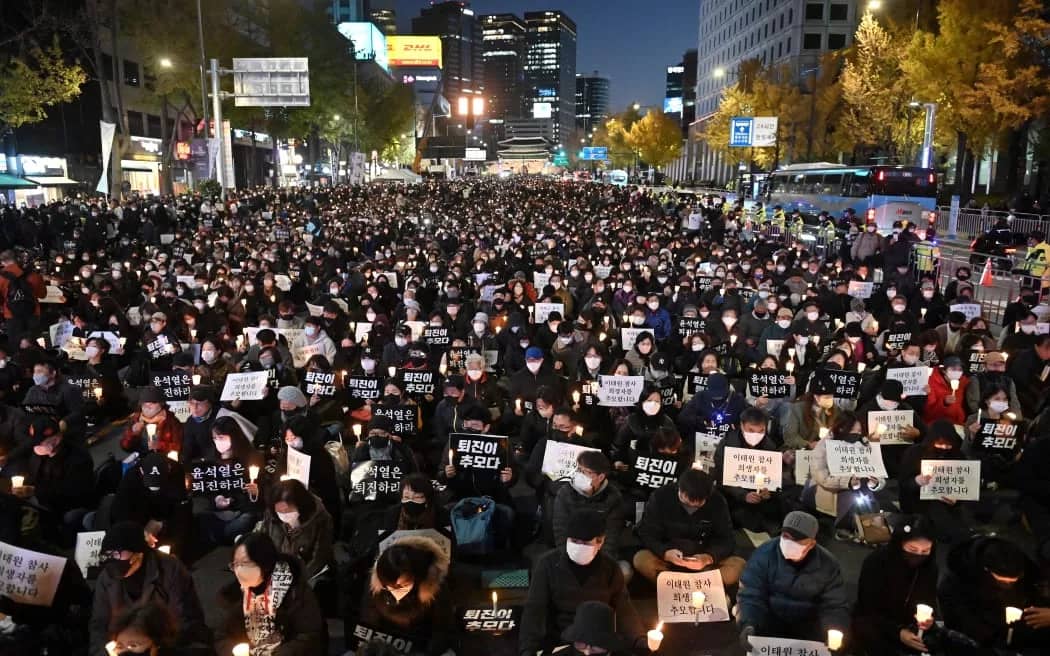On the evening of December 3rd, South Korean President Yoon Suk Yeol declared martial law in order to address alleged “anti-state forces” and an imminently growing “threat from North Korea”. Despite the President giving somewhat convincing reasons for declaring martial law, it was grounded in his own plummeting approval ratings, since he took office in May 2022.

Why did he declare martial law?
In November 2024, his approval was around 19%, influenced by allegations of nepotism, increasing economic disparity, and impeding social mobility, something South Korea has struggled with for the last 50 years. Yoon Suk Yeol is part of the People Power Party, a right-wing party currently in control of the government, but with a minority in the National Assembly. The Assembly passed all the legislature and funding, so Yoon Suk Yeol’s government dependent on a coalition and negotiation with opposition parties, like the centre-left Democratic Party.

Due to the Democratic Party controlling the National Assembly, martial law was swiftly overturned in approximately six hours and Yoon Suk Yeol was accused of undermining democracy. During the six hours, the law was in place, South Korean troops were flown into the Assembly on Apache helicopters to stop lawmakers from convening and voting for the removal of martial law.
An impeachment motion has been passed against the President, whilst Prime Minister Han Duck-soo serves as acting president. The Constitutional Court has 180 days to deliberate, however, they are expected to take much less time, with a preliminary court date set for the 27th of December.

The crisis in South Korea underscores the resilience of its democratic institutions, as the National Assembly swiftly overturned martial law and pursued impeachment. The outcome will define the nation’s political future and test its commitment to democratic stability
If you want to read more Politics articles and summaries, visit:
All Images belong to Copyright Holders
Cover image from – AFP/Handout/South Korean Presidential Office via Yonhap




